
- •Англ1йська мова
- •Видано за рахунок державних коштчв. Продаж заборонено.
- •Contents
- •I ntr о цш cto ry review
- •Read the article quickly. Refer its
- •Read the article again and discuss the questions in groups.
- •Present time
- •Past time
- •Future time
- •Ask and answer in pairs.
- •Read the instructions and write a letter.
- •5J Discuss the following questions in groups.
- •A) Skim the short article in one minute. Which of the following sentences describes the main idea of the text?
- •Look at the numbers below and say what they refer to. Match each number with its reference.
- •Scan the text again in 30 seconds to check your answers in (b).
- •3A bateau [’baetao] — плоскодонний човен
- •In groups, try to find as many English words that have entered your language as you can. The winner is the group with the longest list. Set a time limit.
- •Make the longest meaningful sentence using these words.
- •Indirect questions
- •Implication (,impirkei(n| вппутуваиия;
- •Пщручник для 11 класу загальноосвггжх навчальних закладйв. Р1вень стандарту
- •Видано за рахунок дсржавних коигпв. Продаж заборонений.
- •46006, М. Тернопть, вул. Гайова, 8 Свщоцтво про внесения до Державного реестру суб’ектш видавничо! справи tp Ne 28 вщ 9.06.2005 р.
- •61024. М. Харюв, вул ОльмЫського. 17.
- •Work in groups.
- •Interview one of the students to find out what helps him/her to achieve good results in this or that subject.
- •Share your results with other groups.
- •Read the text (page 24) and complete its paragraphs (1-7) with the suitable words or word combinations (a-g).
- •In groups, discuss why different types of dictionaries are valuable.
- •Vocabulary °
- •Refer each sentence to the correct type of Conditionals (I or II).
- •Fill in the gaps with the appropriate form of the verb in brackets.
- •It sounds like...
- •It reminds me of ...
- •1 The case for coeds1
- •Is a person or company that
- •Introductory paragraph Paragraph 1
- •Introductory paragraph Paragraph 1
- •1Лаааая
- •3Rd conditional
- •Complete the text with the words from the box.
- •VMtTariah TtRriMl maDt vith qoat's che.E.Sl amo auurgiMtS
- •I'll find out what's happened to it.
- •Work in pairs. Find out which of the above dishes your partner would or wouldn't like to try and why.
- •Use the reporting verbs in brackets to report the following statements.
- •Work in pairs. Complete the dialogue with the sentences below (a-f) and dramatise It
- •The Traditional Healthy
- •Vegetarian Diet Pyramid
- •Is it possible for everyone to follow such a diet? Is it necessary to do so?
- •If it Is advisable to do so or not?
- •Introductory paragraph Paragraph 1
- •Introductory paragraph Paragraph 1
- •Visit their website: network.Org.Ua or call.
- •If you have any questions about
- •It's free!
- •1 A) Guess the meanings of the following words (1-6) and match them with their definitions (a-f).
- •Infinitive and gerund (-4ng form) revision
- •6 F Listen to the song and sing it along.
- •It note for note,
- •4) In groups, choose one of the topics (ы0) and discuss it. Complete the table 'Problems. Solutions. Results'. See the example on oaae 229
- •Politics
- •Gerund (-ing form)
- •Participle I (0,1, II, III)
1 The case for coeds1
The results of recent studies of gender differences in education are largely in favour of single-sex schools as opposed to coeducational schools.
Most studies worldwide show that girls at single-sex schools attain the highest achievements; boys at single-sex schools are next; boys at coed schools are next; and girls at coed schools do worst of all.
The results in Britain from 800 public schools, single-sex and coeducational, show that the superior performance of students in single-sex schools is not due to socioeconomic factors but appears instead to be due to single-sex education.
In Mill Hill, the country high school was divided up into a girls' wing and a boys' wing in 1994. Since that time, the number of pupils scoring high in GCSE exams has risen from 40 percent of 79 percent. Dr Alan Davison, the principal, comments that “Men and women's brains are different. So, we need to adapt our teaching to this. It is crucial that we in education recognise that.”
But a single-sex education not only tends to better academic achievement; it has also been shown to broaden students' horizons. A British study into the attitudes of 13 and 14 year-old pupils toward different subjects concluded that students at coed schools tended to have gender-typical subject preferences. However, boys at single-sex schools were more interested in drama, biology and languages than at coed schools, while girls at girls-only schools were more interested in Maths and Science. As a consequence the students
'coeds
= coeducational schools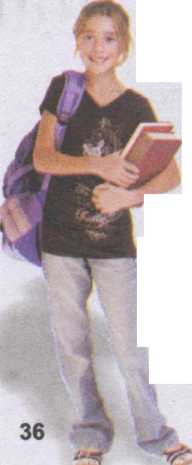 were
not constrained2
by gender stereotypes, they were freer to explore their own strengths
and interests. Single-sex schools break down gender stereotypes. Coed
schools reinforce gender stereotypes.
were
not constrained2
by gender stereotypes, they were freer to explore their own strengths
and interests. Single-sex schools break down gender stereotypes. Coed
schools reinforce gender stereotypes.
Moreover, at many coed schools, academic performance suffers as the feeling among students that it's not “cool” to be excited about school. The game of who likes who, who's going out with who, who's cool and who's not, is what's really important at most coed schools. Studies in the United States have shown that students in the single-sex schools have a far more positive attitude toward studying than students in coed schools do. This finding was held for both boys and girls.
b) Discuss the arguments put forward in the article in groups.
USE
YD U R ENGLISH
1
©
Do
the project ‘My Presentation’. Search for information on the
international exams in English and prepare a short presentation. Use
the instuction below.
a
ni
z
Cl
>
tn
H
с
0
m
2
H
TTY
Search
for PET,
FCE
and CAE in the Internet.
Write
your presentation using the materials you have found, the following
phrases and the plan below.
Do
the presentation in class using Helpful
Tips.
HELPFUL
^TIPS
о
To
start with ...
Today
I want to talk to you about...
After
that, I'll move on to ...
That's
all about...
Now
I would like to ...
Finally,
I'll review the main points.
Feel
free to interrupt me if you have any questions. Let's move onto ...
A
good example of this is ...
Good
morning, everyone, and welcome! The purpose of this presentation is
to get you acquainted with .... First of all ...
![]()
Giving a Presentation
Speak slowly, don't speak too quickly.
Pause between important points.
Lower your voice to draw the audience in.
Raise your voice to- emphasise important points.
Maintain1 good eye contact with your audience.
Don't use long sentences or difficult grammar.
Avoid using words the audience may not know.
The Plan of Your Presentation
Welcome your audience.
Introduce your subject.
Outline2 the structure of a talk.
Give a summary of your findings.
Make conclusions.
Answer the questions of your audience.
2to
outline [’autlain] — окреслювати
USE YOUR ENGLISH
1-/6 Read the information and hold the class debate.
IfiaSAJ
A
proposal for education reform is being discussed by students,
teachers, parents, experts, etc. It still hasn't been decided how
students will be assessed at the end of their secondary school
education.
Before
making the final decision, the Ministry of Education is interested
in what students have to say about this rather controversial1
issue.
’controversial
[,kDntra'v3:Jl]
—
стрний,
дискуайний
Follow
the instructions below.
Form
three groups.
The
first two groups should prepare arguments for either accepting or
rejecting the motion, present their arguments and be ready to
answer questions from the other group.
The
third group should listen to both groups and decide whether to
accept or reject the motion providing arguments for their
decision. Before making the decision, the third group can put
questions to both groups.
Allow
time for groups to prepare their arguments.
Group
presentations.
Asking
and answering questions.
Presenting
the decision.

CONTINUOUS
ASSESSMENT OR
ONE FINAL EXAMINATION?
шшши
ust
яЬЬгаЛлЙолв*
but
илд1ее
sure
you СЙЛ
UI/UtefStfllA'Cl
tVi
tv*.
Inter
use
words Ittee a^d,
because, but аиЛ
therefore
to
show bow Ideas relate to each other
put
each ^ew Idea ow a
©
©
t>o
NOT write
complete se^tei^es. Notes must be short
Get
some information and look through the examples below.
Notes
are
short pieces of writing, which help you to remember something. Due
to the vast amount of information we receive, we have to put it in
the briefest possible form. Notes usually take the form of words or
short phrases.
We
have already stated that preparing well for the writing assignment
is a key element in a successful accomplishment of your task.
Discussing and taking notes can be very helpful in the prewriting
stage of the writing process.
Making
notes can take various
forms
depending largely on what type of a person you are. However, there
are certain characteristics that are common to all forms of making
notes: 4
й
tot
of spac-e
so you
Read
about some ways of елра^
youcr
Ideas
making
notes and discuss the question in groups.
•
Which
of the offered methods of note taking would suit you best? Why?
a)
FLOW CHART (Having Friends for Dinner)

![]()
■Z cancel late meetings Sleave office at four
■>/ go to the supermarket 'Z DO NOT forget shopping list
\
Scall the Horist — ask to deliver Howers by six
•Zstart cooking by 5:30 •Zcheck evening dress
b) CLUSTERING (Travelling to the Island of Fuji)
Z check passport validity | ^ ^ ^ •/ check the weather — clothes j
Z take traveller's cheques | < Z travelling to the island of Fuji |
t/'
Z get some travel guides (local customs, sights) |
the idea of a traditional holiday has changed significantly in the past decade
people in general have become more demanding and expect better quality for their money
love of adventure has always been a part of human nature
new means of transport have enabled us to travel more easily and faster
more people can afford these new types of holidays due to more reasonable prices
Choose one of the topic sentences below and make notes. Write a paragraph in 80-100 words. Keep in mind the steps for writing a good paragraph (see the checklist on p.167 of Appendix in ‘English-10’).
Mathematics has always been my favourite subject at school.
Independent language learning has several advantages.
For many years my family has been celebrating Christmas in the same way.
![]()
Read and discuss the information in pairs.
A summary is a short statement that gives only the main points and not the details of a longer text.
A well-written summary should be concise (only essential information should be included), complete (all important information must be included) and clear, i.e. understandable to the reader. At last, a summary must be correct. It must convey the exact meaning of the original text.
A summary must be written in full sentences.
Don’t mix up paraphrasing and summarising! Paraphrasing is "rewriting" information from another source in your own words without changing its meaning. Since you have to include almost all the original information, a paraphrase is almost as long as the original. On the other hand, a summary includes only the essential information, which makes it much shorter than the original text.
However, changing the original meaning is not allowed in either a summary or a paraphrase.
Choose a text from a newspaper or a magazine and read it. First determine the number of words and then write your own summaries. Comment on each other's summary regarding the characteristics of a good summary.
CHECK YOUR SKILLS
VOCABULARY
1 ) Fill in the gaps in the sentences given below with one of the words A, В, С or D. Change the forms of the words where necessary.
A failing В studying for С passing D taking |
Congratulations on ... all your exams!
No one likes ... an exam. I hope she will do better next time.
When are you ... your English exam, in May or June?
Maria is ... her English exam so hard, she doesn't go out at all!
A memorise В revise С repeat D learn by heart |
Do you think it is possible to ... everything that we have studied during the year in two days before the exam?
My friend has a very good memory, she can ... a long poem easily.
If you want to master foreign pronunciation, you should have enough patience to ... phrases after the tape for many times in a row.
No matter how hard he tried, he couldn't... the list of irregular verbs the teacher gave in class.
A learn В study С find out D know |
Where does your friend ...? — He does an English course at university.
It has always been easy for Jack to ... foreign languages.
Peter... several foreign languages and his dream is to work as a tour guide.
It is always very interesting for me to ... about the culture of the country whose language I study.
GRAMMAR
![]()
Complete the sentences by changing the verb in brackets into the First or Second Conditional form.
If it... (stop) raining we’ll have to cancel the tennis game.
If you loved her, you ... (lie) to her.
If you ... (finish), show me your notebook.
I ... (lend) you any money unless you promise to pay me back before the end of the month.
If I ... (speak) Italian, I would move to Florence.
If I... (be) you, I would notify them of the changes.
If we meet in front of the cinema at a quarter to eight, we ... (have) enough time to buy the tickets.
1
]
Johan
Basia
Pablo
Hilmi
Listen
to the four international students talking about how they memorise
words. Match them with the strategies they use.
Self-testing:
doing
personal tests or asking someone at home to test you
Visual:
writing,
drawing, connecting photos with words j
Oral:
saying
words aloud, making connections between words
CHECK
YD U R SKILLS
Analytical:
thinking
about the structure of words
LISTENING
READING
(
4 ) a)
Read the student's presentation on learning styles and complete the
form below.
Right,
well, er... my talk today is on learning styles. I chose this
because there is a lot of research into it and it seems as if nobody
really agrees on how to assess learning styles. I'll start by
outlining some competing theories about.
How
people learn... There aren't any handouts, I'm afraid, but New
anyway...
One theory is the VARK system. V-A-R-K means V for Zealander visual,
A for auditory,
like hearing,
R for reading
and К
for,
I don't know how to pronounce this... kinaesthetic?
Yes, that's it. Kinaesthetic. That means things like touch, movement
and stuff. Anyway, according to the VARK system, depending on your
learning style, you learn in different ways.
If
you're a visual learner, then you need to use charts and pictures,
use colour highlighting in your notes, and stuff. If you're an
auditory learner, then reading aloud and listening will help you
learn. Reading is just reading, of course. You leam by reading.
Kinaesthetic learners need to move around while they learn. You're a
kind of hands-on person if you're that kind of a learner, so you
should revise while standing up and walking around the room, for
example. Anyway, that's just one theory. There are lots of others,
too.
So,
to conclude then, personally I think that we all have our own
learning styles and we are not just one type or another. In other
words, we are probably a blend of lots of styles. I don't think any
of the learning styles I've told you about is better than any other.
I think the problem is that we all learn in different ways, and try
to find a system to fit in ail the different ways
CHECK YOUR SKILLS
we learn. We are too creative to be boxed in like that. Not everything about the human brain can be mapped and predicted. How we learn is different for each person, so the point I'm making is I don’t know how useful it is to try to categorise everyone into types.
Learning Style |
Advice for Studying |
V |
|
A |
|
R |
|
К |
|
b) Read the statements below and tick (•*/) your answers.
АНГЛ1ЙСЬКА МОВА 11
I NTR О ЦШ CTO RY REVIEW 4
[10 HD [Ю ЦП [Щ \UJ HD [Ю 20
APPENDIX 271
BBiNi A STUDENT 20
Cult^aUlterary^owledge 22
demonstrate en 23
1ЛААААЯ 99
tesss I 99
P^rrsss 99
mmmmnttmt, 106
wa®*w*« 106
So You Think It's 232
CAN YOU ... IN ENGLISH? gf - yes, I con.
read and understand about gender factor in education
LJ I'sten and understand about the ways to prepare for your exams
I I about your learning
QJ express your opinion about grading and assessment
Q understand and use Conditionals I and II
use different methods of note taking Jfc
MAKE UP YOUR MIND
2
о
z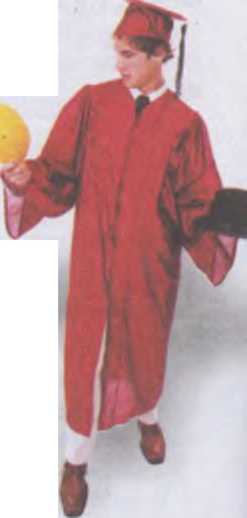 1
Work
in small groups. Read and discuss the following.
1
Work
in small groups. Read and discuss the following.
Here are some qualities that employers often look for when
selecting candidates for a job. Do you think that these
qualities are acquired more at school or outside school?
to be willing to leam
to be willing to travel v
to be able to cope with difficult situations
to be open-minded
to work in a team
to communicate well with people
to show initiative
to show responsibility
to show persistence (the ability to keep going when things get tough)
© Read the article quickly and decide which of the messages below (A-С) is the main message of the article.
Many school-leavers in the UK take what is called a gap year— a year between leaving school and further education.
In this gap year, they do voluntary or paid work, often abroad.
A Students who take a gap year and use it well have an advantage over those who go straight from school to university.
В Students who take a gap year mature more quickly С There are many ways in which a school-leaver can usefully spend a year between school and university.
THAT
GAP
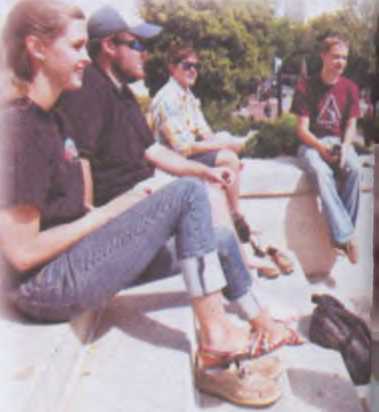 People
who take a year out before going to university and use that time to
gain more skills are more attractive candidates for jobs than those
who go straight from school to university, according to research for
the Department for Education. The research says that employers are
particularly interested in the skills that students pick up when
travelling, volunteering and working, because
People
who take a year out before going to university and use that time to
gain more skills are more attractive candidates for jobs than those
who go straight from school to university, according to research for
the Department for Education. The research says that employers are
particularly interested in the skills that students pick up when
travelling, volunteering and working, because
they do not trust universities to teach the arts of communication, teamwork and leadership,

WORD
FILE
confidence j'konfidans] an employer (im'pbia) a fee |ft:j
a founder |'faonda| persistence [pa'sistansl a volunteer l.vDldn'tia] to mature |тэЧ{оэ| to trust [trASt) extended (ik'stendtd) faint-hearted I,feint 'ha:tid| isolated [’aisaleitid] remote [n’maotl tough |t.\f) overseas l.aova'siizl
to conduct a survey
to get insight (into)
to work on (a project)
Jamie Underwood, a founder of a gap year agency, says. "It's a brilliant thing to
do. If you're focusing on getting ahead, employers love it: it shows character, confidence, achieving goals and persistence "
School-leavers can choose from a wide range of activities for their gap year. They can take part in an adventure project, like an expedition to some remote comer of the earth, which can be really exciting and it has the advantage of travelling as part of a group and making some life-long friends. They can work on a conservation or environmental project, like
conducting an underwater survey of a coral reef or monitoring an endangered species. They can do temporary or seasonal work abroad and this way get insight into a very different way of life. They can join a humanitarian project, such as doing social work with people in need. Or they can join a structured work expenence programme and gain valuable experience and practical skills in their chosen field Mr Underwood says. ‘I matured during my gap year. I grew up. You come back with a real sense of achievement and a new perspective on life."
But some locations aren't for the faint-hearted. Voluntary work can be tough. You may be out in the middle of nowhere, feeling isolated and having trouble coping with the complete culture shock. So it's important to research the opportunities fully and take time to read what other 'gappers' have to say about their experience of volunteering overseas And it's also important to plan the year properly. According to the research of the Department for Education and Skills, too many students fail to plan properly and do not take advantage of the opportunities on offer. This can turn the gap into a blank hole. As Mr Underwood says. ‘There's a great difference between doing a structured placement and going on an extended holiday in some exotic place. Students who are doing volunteering get an awful lot of good experiences. Employers are falling over themselves for those maturing skills, which they think universities don't give.’
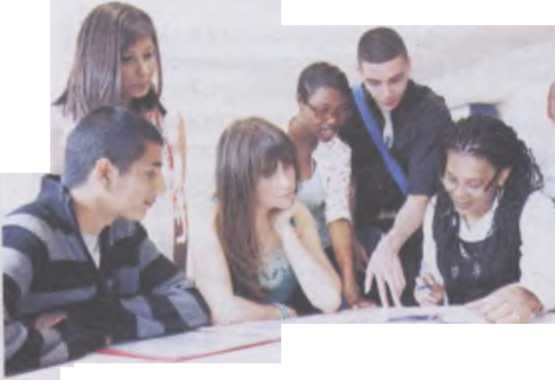

 Read
the article again paying attention to the words In bold and
consulting a dictionary if necessary. Decide which of the following
messages (a-g) is not included in it
Read
the article again paying attention to the words In bold and
consulting a dictionary if necessary. Decide which of the following
messages (a-g) is not included in it
a Students who do voluntary or paid work in their gap year have a better chance of getting a job after university, b Employers look for much more than educational qualifications, с Many students use their gap year to pay for their university education, d Voluntary work in another culture can broaden your view of the world, e Some students can have negative gap year experiences f A number of students do not use their gap year well, g Some students find it difficult to adjust to further education after a gap year.
©
Match
the words with their definitions.
confidence-
extended
faint-hearted
isolated
to
mature
overseas
persistence
tough
to
trust
a
volunteer
a
to become fully grown or developed b
someone who does something without
being paid the belief that you have the ability to do things well or
deal with situation successfully d a quality that gives a person
ability to continue to do something although this is difficult e
abroad
f to believe that someone is honest and will not harm you. cheat you. etc. g difficult
h increased, longer in time or bigger in size
not trying very hard, because you do not want to do something, or you are not confident that you can succeed
j feeling alone and unable to meet or speak to other people
Find the words or phrases in the article that mean the following (the number of the paragraph, in which the word appears, is in brackets).
a to acquire (a skill) —... (1) b far from towns — ... (3) с carrying out (research, a survey) (3)
d carefully watching a situation to see how it changes — ... (3) e a dear understanding of something, especially something complicated —... (3) f
people who are not prepared to make a lot of effort or are easily demotivated —... (4) g in a remote place —... (4) h being very eager for something —... (4)
Look for five types of gap year activities in paragraph 3 of the article. Ask and answer the questions in pairs.
To which types do the following activities belong? a working with homeless children b protecting the habitant of white-headed vultures' с searching for dinosaur fossils' in Patagonia d working in a mobile phone company e picking olives in Spain
'a vulture (\лИ(а| — гриф
fossils I'fo&lz] — скам'яншостк emcormi тварини
Which of the types of gap year activities would interest an employer who is looking for someone who: a is adventurous and has strong endurance' skills? b can adapt to different cultures? с has practical skills in the field of work? d has a caring personality?
 ©i„
groups,
discuss the following question.
©i„
groups,
discuss the following question.
 What
do you think are the benefits and drawbacks of taking part in
projects like the ones mentk>ned in the article?
What
do you think are the benefits and drawbacks of taking part in
projects like the ones mentk>ned in the article?
Read about four examples of gap year opportunities.
Match each type (1-4) with the appropriate paragraph (A-D).
Adventure project l~~l 2 Environmental project l~l 3 Humanitarian project
О 4 Structured work experience
A This Children's Village is a place of safety for children who have been removed from their families or orphaned. The aim is to reunite the children with their families or extended families. The volunteers assist in the village in numerous ways.
В The project is a part of a large international organisation that specialises in outdoor activities, such as climbing, trekking, etc. It aims to ‘encourage personal development and generate understanding between people' through placing individuals in adventurous and stimulating situations.
С Main activity of the project: conducting field research, collecting information and specimens of wolves and working at the Wolf Management Centre as part of a research and preservation programme. D The company seeks ambitious, forward-thinking students who are
looking for work during their gap year. They will be working with the team of researchers to provide timely and accurate information in response to requests from UK and overseas departments. They will come into contact with people at all levels within the company, so good interpersonal and communication skills are a necessity. The successful applicant will receive training. This is an excellent opportunity to get a good overview of business finance.
'an endurance |in'd}o»rMisl — витривалють, тертння
a) Read what Heather and Phil say (see page 50) and find out which of the projects (A-D) they are on.
 A
Children's Village С World preservation
A
Children's Village С World preservation
В Outdoor activities D Work experience
I'm going to university next October to study economics, and I wanted to get some hands-on experience before I went, so I took a position here. I've been working here for three months so far. To start off with, I was trained in the systems they use. It was meant to last for a few weeks but it wasn't that difficult, so they cut it short and put me to work. I work in a team of researchers, and something I didn’t know is how important teamwork is. Nobody here works by himself. Everyone is part of a team, so you have to depend on others and they have to be able to depend on you. They*ve all been very helpful, and to start with, they worked closely with me to make sure I did the job properly. But I've been working here for three months now, so I've now got some jobs that I do by myself, like maintaining a large database, for instance. Of course, I have to make sure that I do the job property, or there'll be trouble for the whole team. This sometimes means that I stay after working hours to get something finished that's needed for the next day. You cant leave things half-done, but you have to keep at it unbl it's finished no matter what. So I've not just been learning a lot about business systems, but I've also learned that the way you communicate with people even more important.

I've been working here for five weeks. Basically, I've been looking after the older children rather than babies, you know, dressing and feeding them, playing with them, helping them with their schootwork, though I have also spent some time caring for babies. Basically, we work as a team and in the evening we decide on what's to be done the next day and who's going to do it. But you cant just do your task and ignore what's going on around you. You see that something needs to be done, so you do it. Just after I arrived, there was an outbreak of hepatitis4 in the area. It was a fairly scary time — hygiene* was everything. Kids could no longer share a towel after washing their hands, they couldn't share a cup of water. It wasn't easy. I can tell you. Tomorrow I'm taking some kids for an outing. I've got to make sure we all keep together and that nobody gets lost. But I've really enjoyed working with the children so far. If I'm honest. I'm not the biggest kids lover — I have no desire to work with kids long-term, but this changed my attitude completely.
b)
Fill in the table with at least 3 skills and qualities (1-9) that
each of the young people shows.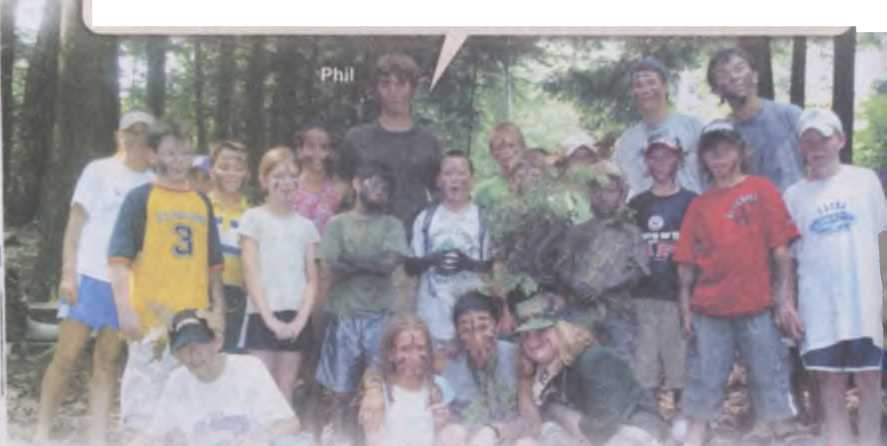
persistence
ability
to handle difficult situations
practical
skills in their field of work
Heather
1
Phil
'hygiene
I'haidjLnl — rihcna
VOCABULARY
![]()
 PCD
I NT
«
PCD
I NT
«
Work or job?
Work is something you do to earn money. This noun is uncountable.
She enjoys her work in the hospital.
Job is used to talk about the particular type of work activity which you do. He's looking for a job in computer programming.
Possibility, occasion or opportunity?
A possibility is a chance that something may happen or be true.
Possibility’ cannot be followed by an infinitive.
Is there a possibility of getting a job in your organisation?
An occasion is an event, or a time when something happens. 'Occasion' does not mean 'chance' or 'opportunity*.
Birthdays are always special occasions.
An opportunity is a possibility of doing something, or a situation which gives you the possibility of doing something.
The trip to Paris gave me an opportunity to speak French.
I have more opportunity to travel than my parents did.
1 Choose the correct word to complete each sentence.
It was hard physical (job I work), you know, lifting people, helping them into wheelchairs and pushing them.
I got my first (job I work) as an assistant receptionist in a hotel when I was just 18.
It wasn’t a very well-paid (job I work), but then first (jobs I works) often aren't.
I thought it was a great (opportunity I occasion / possibility) to get some work experience.
And on some (opportunities I possibilities I occasions) I was left on my own as the person in charge of the whole of this enormous hotel.

I
VOCABULARY POINT![]()
 career
I'kaeridl
career
I'kaeridl
Your career is the work you do over a number of years: His acting career began when he was just 6 years old and is still going well.
employee
limpb'ii:) is a person who works for somebody.
